|
|
|||||
|
As the Oscars prepare for prime time on 10 March, we’re highlighting top African films and shows and their connection to the challenges people face in their daily lives. Here are our nominations across a range of categories... |
|||||
|
|
|||||
Top newsBest film for wannabe dictators to watch: “The revolution will not be televised,” singer Gil Scott-Heron famously sang. Ugandan leader Yoweri Museveni would like it to stay that way. But the Oscar-nominated documentary, “Bobi Wine: The People’s President,” is introducing Uganda’s popular opposition leader to a mainstream audience and inspiring his supporters. And it’s highlighting the strong-armed tactics Museveni’s regime is using to stifle critics and stay in power. Wine, his family, and his supporters have been repeatedly subjected to harassment, kidnapping, beatings, and arbitrary arrests. The film’s co-director, Moses Bwayo, was imprisoned and shot in the face during filming (thankfully he’s okay). Museveni, who’s held power for 38 years, has grown increasingly autocratic. Uganda is one of more than a dozen African countries that have removed age and term limits to enable incumbent leaders to remain in office indefinitely.  Best film for museum curators to watch: Senegalese-French filmmaker Mati Diop became the first Black director to win the Golden Bear for best film at the Berlin Film Festival. Her documentary "Dahomey" follows the return of 26 artefacts that France looted from Benin in 1892. That’s the tip of the iceberg: Over 90% of sub-Saharan artistic heritage is currently held outside Africa. Public museums in Austria, England, France, Germany, and the Netherlands hold more than half a million African objects. That denies Africans access to their own cultural and artistic heritage. Diop received her award from Oscar-winning actress Lupita Nyong’o, who served as the head of jury at this year’s Berlin Film Festival. Nyong’o was the first Black jury head in the event's 74-year history. 👀  Best film to witness terrorism’s impact on families: The Tunisian Oscar-nominated documentary, “Four Daughters,” tells the story of a mother’s desperate search for her two missing daughters, who joined the Islamic State as teenagers. Both daughters — as well as one of their own children, an 8-year old girl – are now in detention in Libya. The story highlights a complex challenge: understanding how family members became radicalised and how society copes with their return. As many as 7,000 Tunisians joined ISIS in the years following the Arab Spring; another 15,000 were barred from international travel out of fear they would follow suit. Many are stuck in other countries, often in detention, and some are reluctant for their return, fearing they may spread radicalism.  Best film to watch if you’re short on time: Nigerian-born British photographer Misan Harriman makes his directorial debut with “The After,” an Oscar-nominated live action short film that packs an emotional punch into just 18 minutes. The film highlights the emerging African and African-linked talent playing key roles in successful films. In addition to Harriman, the film showcases David Oyelowo, a British actor born to Nigerian parents, and Izuka Hoyle, a Scottish actress born to a Nigerian mother. Harriman made a buzz in 2020 with his photographs of the Black Lives Matter movement. He later became the first Black man to shoot a magazine cover for British Vogue.  Best film to understand the drivers of migration: First-time Senegalese actors Seydou Sarr and Moustapha Fall shine in “Io Capitano.” The Oscar-nominated film follows their harrowing migration across the Sahara Desert and Mediterranean Sea to Europe. Sadly, the film’s plot about two boys chasing a dream that could end badly is far from fiction. A recent UN report says that climate-related disasters have become one of the main causes of human trafficking. In 2021, they displaced more than 23 million people. Some fell victim to human traffickers and ended up trapped in slave-like conditions: 99% of 469 Sierra Leonean domestic workers interviewed in Oman say they were trafficked. One-third reported being sexually abused. Meanwhile, despite proliferating global crises, the UN is lowering its humanitarian appeal this year due to donor fatigue. 🤦♂️  Best new series for fans of animation: On a lighter note, Iwaju, a limited animated series and Disney’s first feature set in Nigeria, is now available on the Disney+ streaming service (but not in Nigeria!). The series is an optimistic take on a futuristic Lagos, complete with flying cars. But fortunately, it doesn’t entirely ignore Nigeria’s harsh realities, including its socioeconomic gaps, which have reached a breaking point. This week, thousands of Nigerians protested soaring costs. Government employees and other union workers began a nationwide strike, frustrated over soaring inflation and economic pain. Inflation recently hit a record high of nearly 30%. In response, the government announced a rate hike in a bid to stem inflation and restarted cash transfers to 12 million vulnerable households.  From the ONE Team
The numbers

|
|||||
|
|
|||||
Quote of the week
|
|||||
|
|
|||||
What you should read, watch, and listen to:
|
|||||
|
|
|||||
A look ahead3 March: African Environment Day 8 March: International Women’s Day |
|||||
|
|
|||||
|
The ONE Campaign’s data.one.org provides cutting edge data and analysis on the economic, political, and social changes impacting Africa. Check it out HERE. |
|||||
|
|
|||||
Did you like today's email?Loved it Mehhh Hated it |
|||||
|
|
|||||
|
|||||
|
This email was sent by ONE.ORG to test@example.com.
You can unsubscribe at any time. ONE Campaign |
